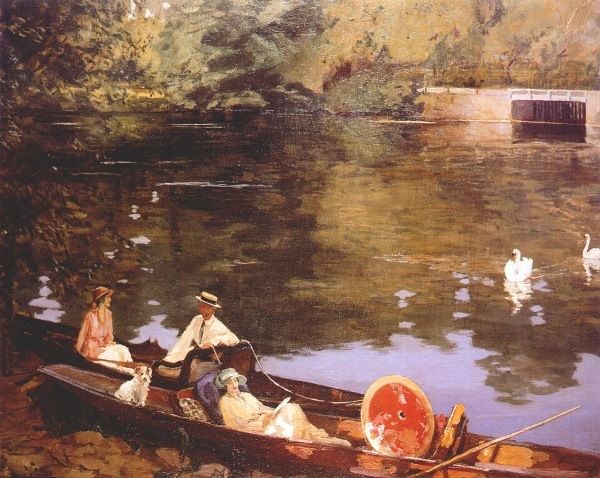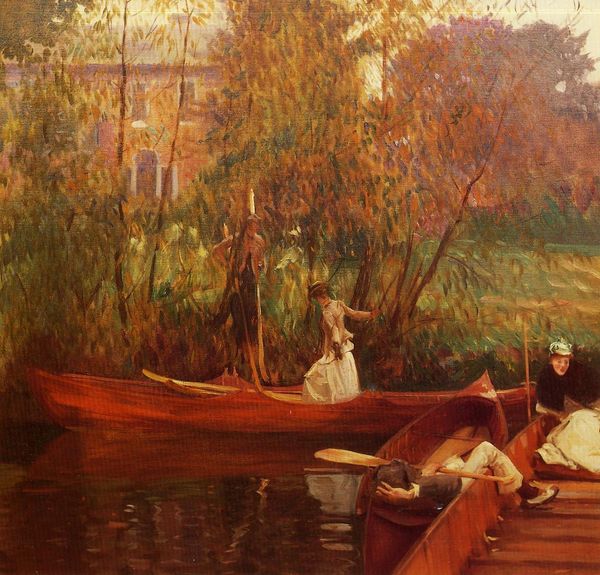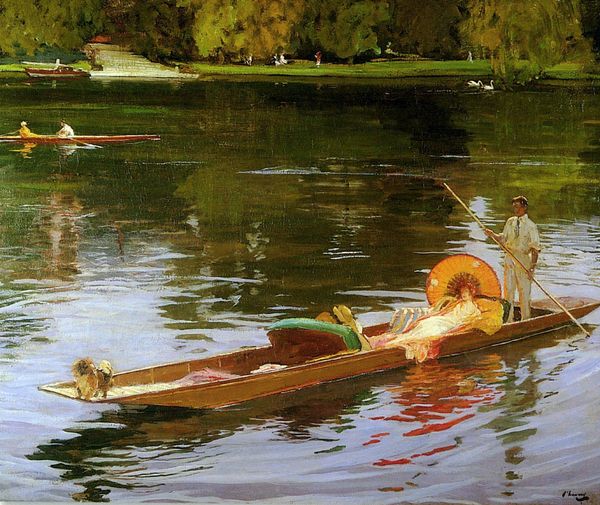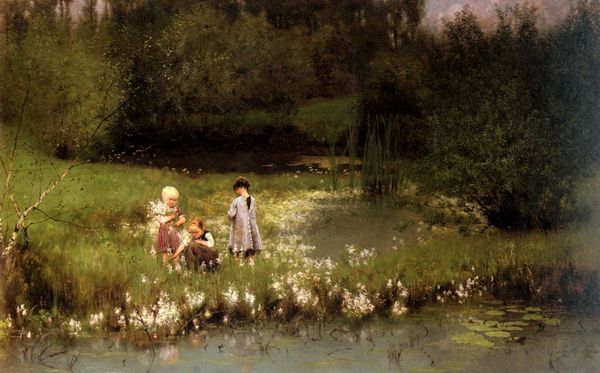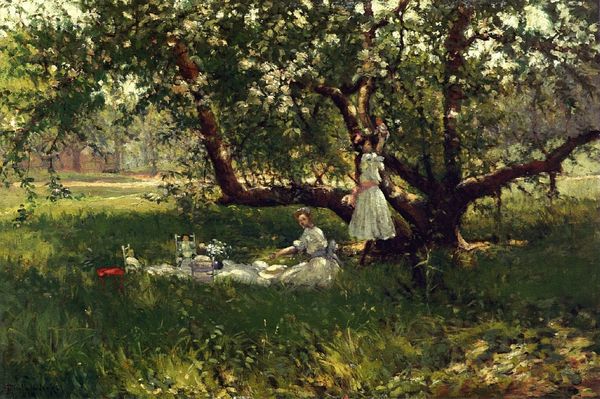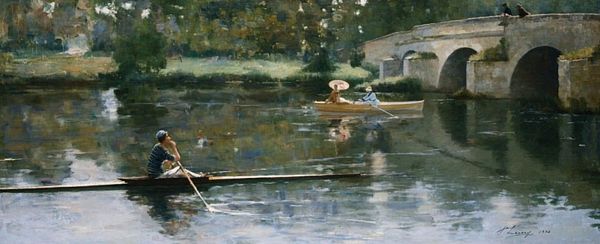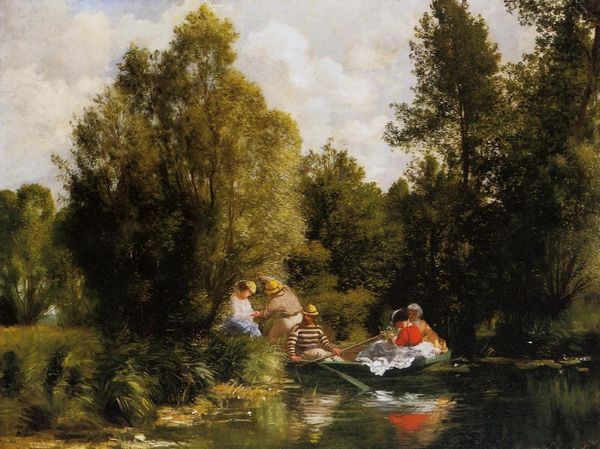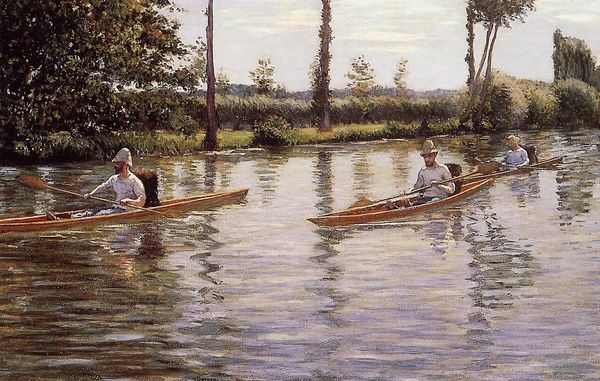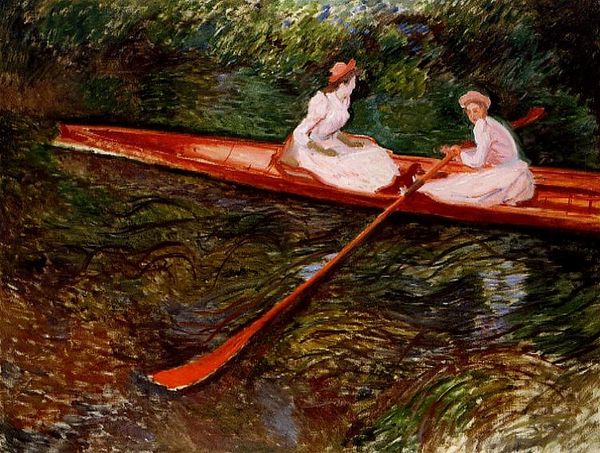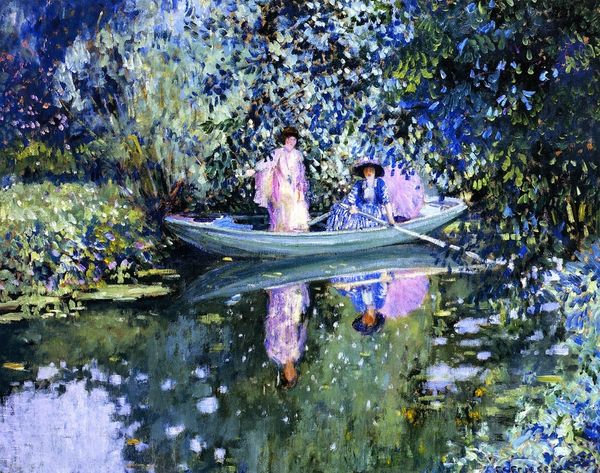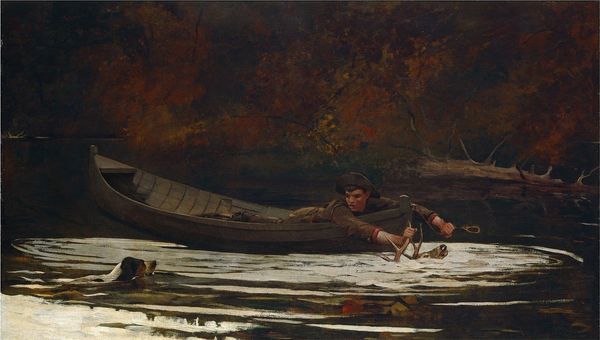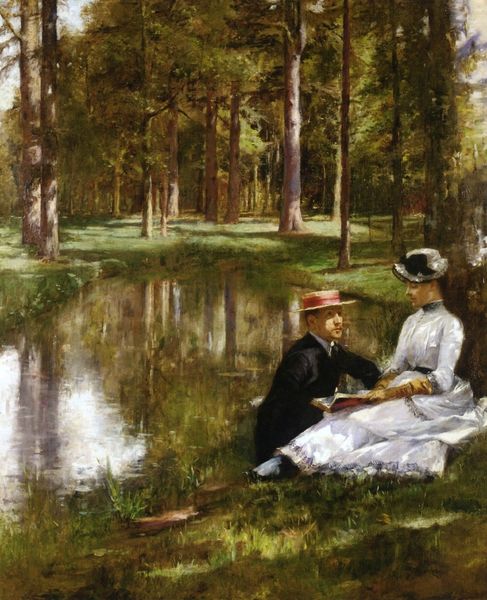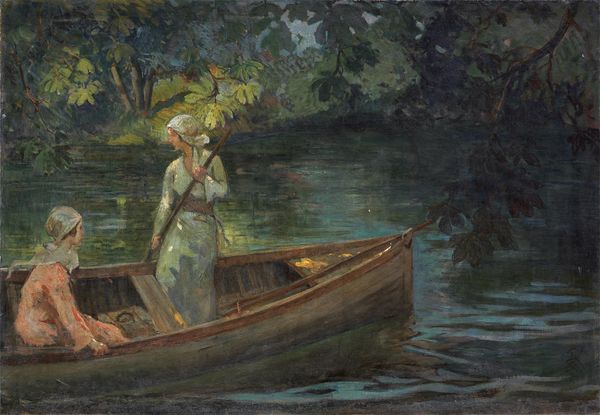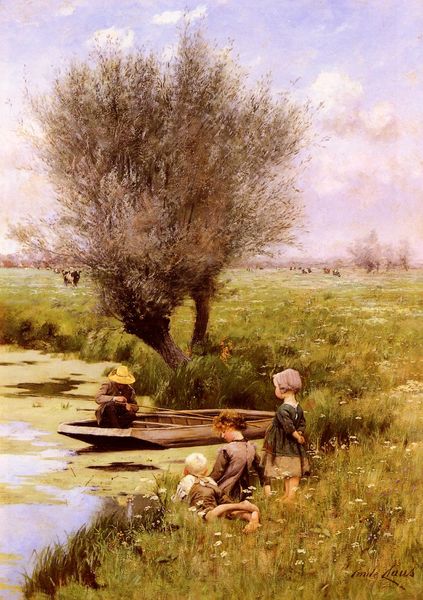
painting, oil-paint
portrait
gouache
boat
painting
impressionism
oil-paint
landscape
water
Copyright: Public domain
Editor: This is Vasily Polenov's "On the boat. Abramtsevo." painted in 1880 with oil on canvas. It strikes me as peaceful, almost melancholic, with these figures gliding across the water. What do you see in this piece, in terms of its historical and social context? Curator: It’s tempting to see this idyllic scene as simply beautiful, but it's crucial to unpack the power dynamics within it. Notice the carefully constructed composition: the women in their elegant dresses, seemingly leisurely, while the boatman rows. Who were these women, and how did their class and gender shape their access to leisure? Editor: That's interesting, I hadn’t considered it that way. So, the painting could be interpreted as portraying a specific social strata enjoying the fruits of their position? Curator: Precisely. Abramtsevo was a hub for artists and intellectuals, often supported by wealthy patrons. Polenov was depicting a particular lifestyle, one enabled by certain privileges and power structures. Who isn’t represented here, whose labor and struggles allowed for this serene moment? The women's attire also speaks volumes. Their elaborate clothing suggests constraints, societal expectations around femininity, and a marked contrast to the working class. Editor: That’s a powerful point. It definitely adds another layer of meaning to the work. Curator: What also grabs me is the near absence of men. By placing women at the centre of his narrative, what, if anything, is Polenov trying to express about their evolving roles, and potentially limited freedoms within 19th-century Russia? Editor: It's almost as if Polenov's subtle positioning critiques the superficiality of leisure for women constrained by social norms, despite their privileged position. Curator: Exactly. Analyzing this image through an intersectional lens allows us to acknowledge the complexities of privilege and constraint. What have you discovered? Editor: Now I view it as a portrait of nuanced power dynamics, reflecting gender and class complexities in 19th-century Russia.
Comments
No comments
Be the first to comment and join the conversation on the ultimate creative platform.
